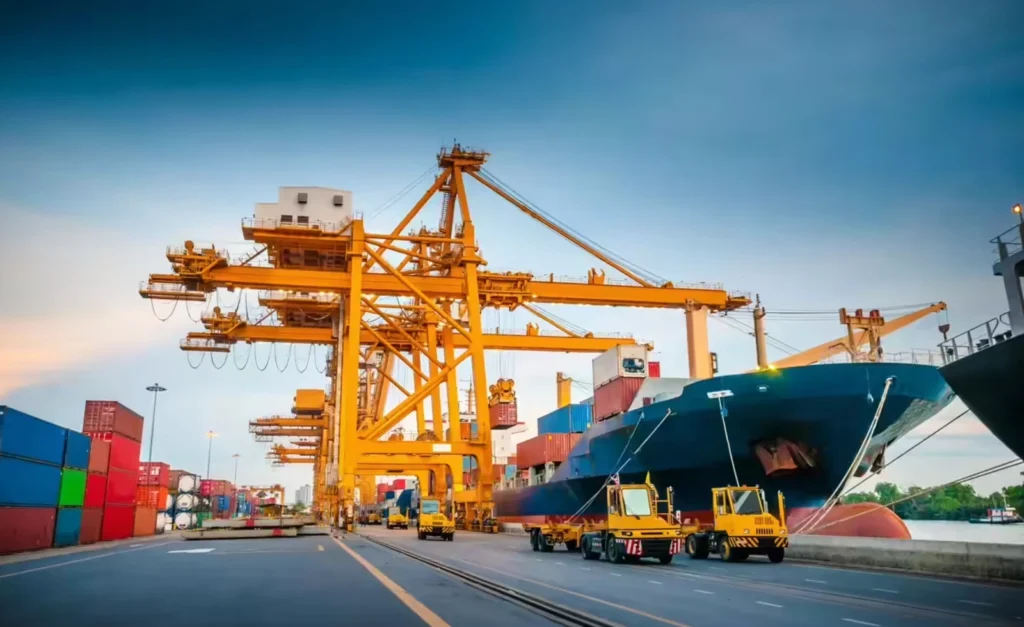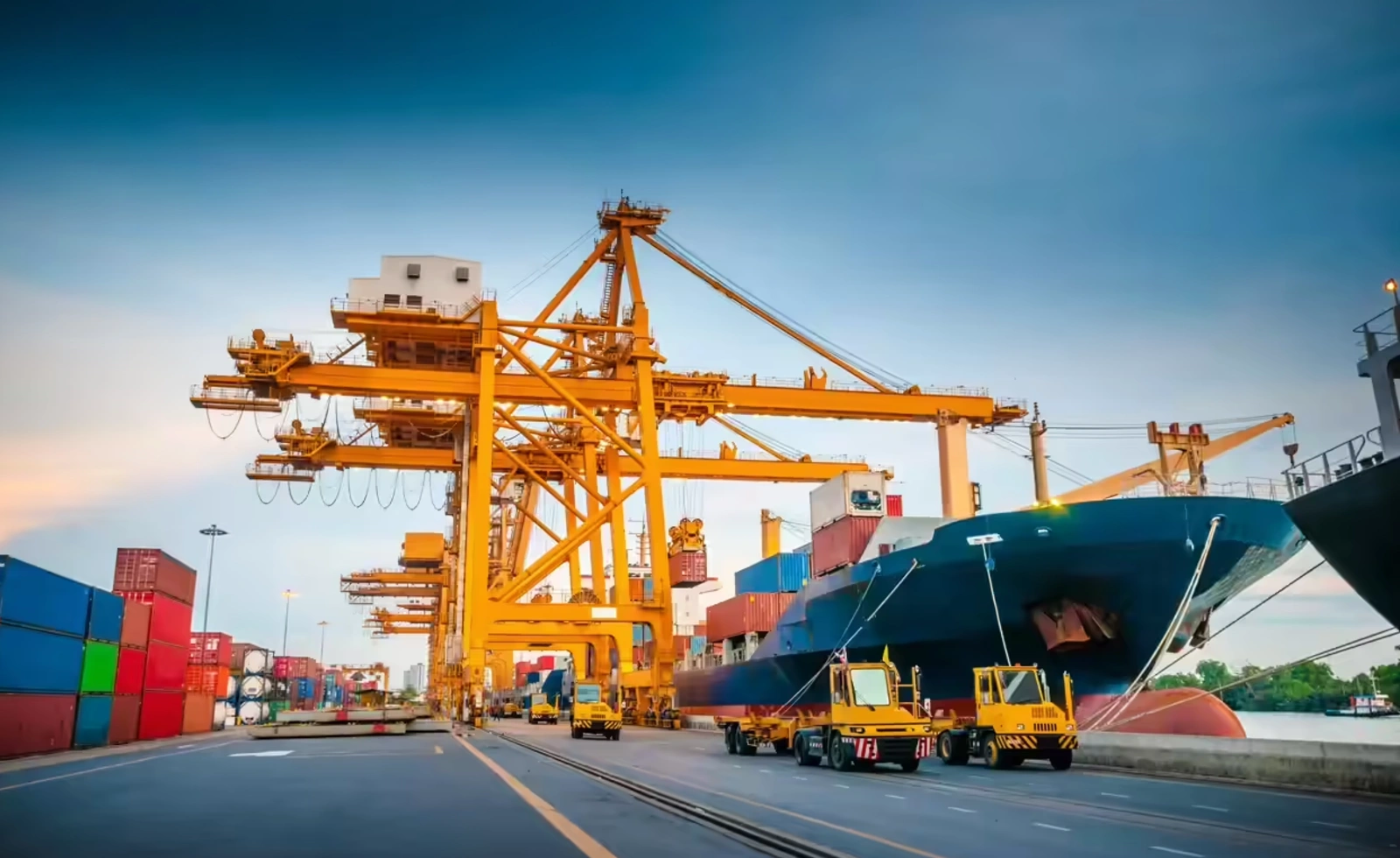Kerala to the World: How Our Ports Power Global Trade
A deep dive into Kerala’s major ports and their role in India’s logistics growth
When you think of Kerala, images of lush greenery, serene backwaters, and centuries-old spice markets often come to mind. But beyond its natural beauty and cultural heritage, Kerala holds another powerful identity, a maritime gateway that connects India to the world. With a coastline stretching over 580 kilometres, Kerala is home to some of the country’s most strategically important ports.
Ports are far more than docking points for ships; they are lifelines of economic activity, driving international trade, strengthening supply chains, and generating employment. In India’s pursuit of becoming a global logistics powerhouse, Kerala’s ports have emerged as vital contributors. This blog explores Kerala’s strategic maritime advantages, provides an in-depth look at its major ports, and examines their growing influence in shaping India’s trade and logistics landscape.

Major Ports of Kerala – An Overview
Cochin Port (Kochi)
The Cochin Port Trust is Kerala’s crown jewel and one of India’s most advanced ports. It is best known for hosting the Vallarpadam International Container Transshipment Terminal (ICTT), the first of its kind in India.
- Container Hub: Handles millions of tonnes of cargo annually, serving as a major transshipment hub for South India.
- International Connectivity: Provides direct shipping links to Europe, the Middle East, and the Far East.
- Industrial Impact: Facilitates petroleum, chemicals, and agricultural exports, playing a direct role in regional economic growth.
Vizhinjam International Seaport (Thiruvananthapuram)
The Vizhinjam Port represents the future of India’s maritime strategy. Currently under phased development, it is poised to transform India’s standing in global trade.
- Deep-Water Capability: India’s first port capable of handling ultra-large container vessels due to its natural draft depth of 20 meters.
- Strategic Location: Just 10 nautical miles from the world’s busiest East-West shipping route, reducing dependence on foreign ports like Colombo, Dubai, and Singapore.
- Economic Impact: Expected to make India self-reliant in container transshipment and significantly reduce logistics costs for exporters and importers.
Beypore Port (Kozhikode)
One of Kerala’s oldest ports, Beypore has been an active center for trade for centuries. Historically renowned for Uru shipbuilding, the port was once a major link between India and the Arab world.
- Regional Trade: Today, it handles passenger and cargo traffic, especially with the Middle East.
- Economic Relevance: Plays a vital role in connecting Kerala’s small-scale industries and fisheries sector to international markets
Kollam Port
Known as Kerala’s oldest port, Kollam has a legacy of trade in spices, cashew, and coir products.
- Modern Role: Focused on coastal shipping and cargo redistribution.
- Regional Economy: Plays a significant role in reducing road congestion by shifting cargo transport to sea routes.
Role of Kerala’s Ports in India’s Logistics Growth
India’s logistics sector is undergoing rapid modernization, and Kerala’s ports are playing a central role in this transformation.
- Reducing Transshipment Dependence: With Vizhinjam and Cochin, India aims to reduce its reliance on Colombo and Singapore for cargo handling.
- Boosting Supply Chain Efficiency: Shorter shipping routes and better connectivity help exporters cut costs and delivery times.
- Integration with National Projects: Kerala’s ports align with the Sagarmala Project and National Logistics Policy, both aimed at making India a global logistics hub.
- Regional Trade Balance: By strengthening South India’s maritime capacity, Kerala helps distribute trade opportunities more evenly across the country.
Economic Impact on Kerala and Beyond
Ports serve as economic multipliers, driving growth beyond the maritime sector.
- Employment Opportunities: Thousands of direct jobs in port operations, plus indirect jobs in logistics, transport, warehousing, and trade.
- Allied Industries: Growth in ship repair, bunkering, IT-enabled logistics services, and inland transport solutions.
- Export Growth: Kerala’s global exports, from spices and seafood to coir, cashew, and IT hardware, are directly supported by its ports.
Kerala as a Gateway for Global Businesses
Kerala is positioning itself as a trade-friendly state where global businesses can find strong maritime support.
- Proximity to International Trade Routes: Kerala sits just a few nautical miles from the East-West shipping corridor, through which nearly one-third of global maritime trade flows. This makes it a natural transshipment point for global cargo.
- Exporters & Importers: Can leverage lower logistics costs and faster turnaround times.
- Logistics & Warehousing Firms: Growing opportunities in inland container depots, cold storage, and distribution hubs.
Conclusion
From the historical trade routes of Beypore to the futuristic transshipment ambitions of Vizhinjam, Kerala’s ports symbolize the state’s enduring maritime legacy and its evolving role in global trade. With strategic location, modern facilities, and a growing logistics ecosystem, Kerala is not just part of India’s maritime story, it is shaping the future of international trade routes in South Asia.



